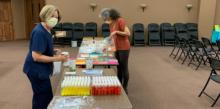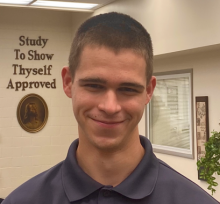Story by Edward Marton
More than 300 Ohio Conference Pathfinders across the state recently joined together from their homes for the conference’s first ever virtual camporee.
Presenting on the theme, “Stand True,” Todd Casey, Pennsylvania Conference’s youth director, focused on the life of Barnabas in the early church. Pathfinders learned that part of standing true is encouraging and supporting one another.





